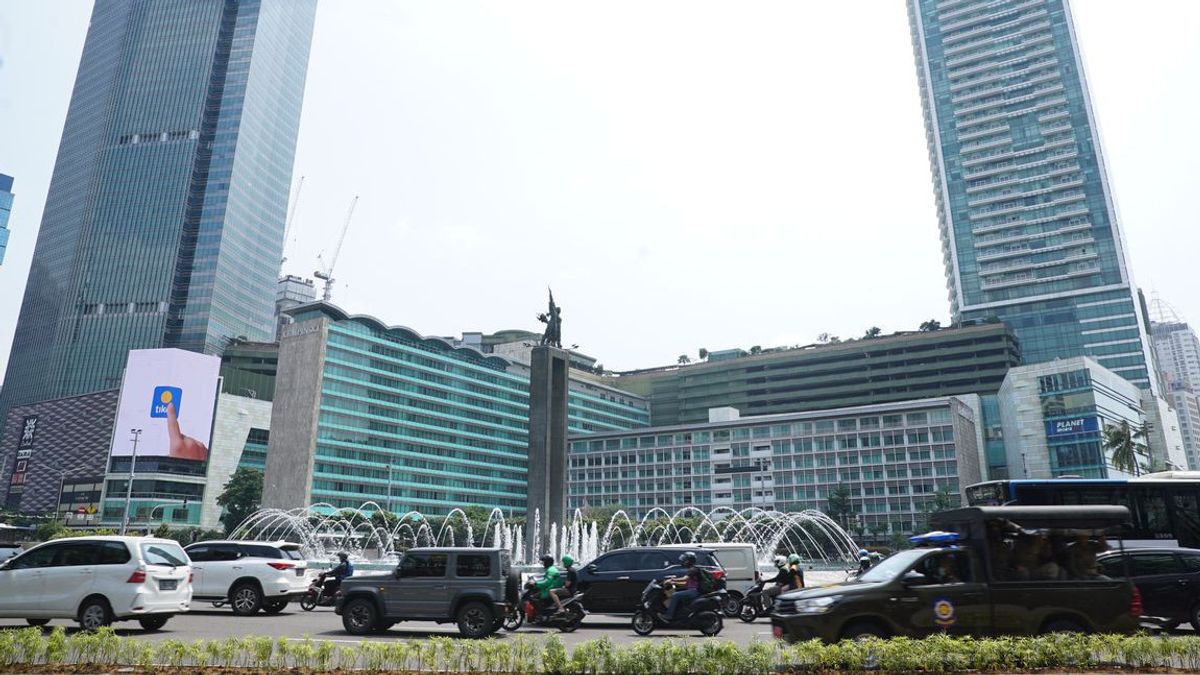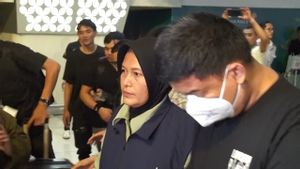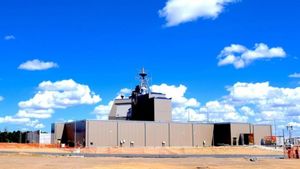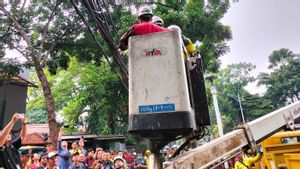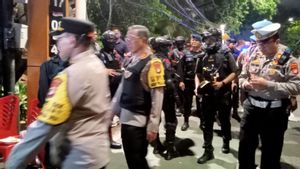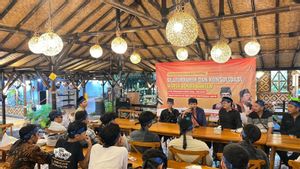JAKARTA - The DKI Jakarta Transportation Agency (Dishub) said that the traffic volume had increased during the implementation of the Java-Bali Community Activity Restriction (PPKM), known in Jakarta as PSBB tightening.
Head of DKI Jakarta Transportation Agency, Syafrin Liputo, revealed that the increase in community mobility was marked by an increase in the volume of motorized vehicle traffic during the January 11-31 period or during PPKM, compared to 12 October-1 November 2020 when the PSBB was in transition.
"The traffic volume has increased by 11.44 percent compared to the PSBB transition period from October 12 to November 3, 2020," said Syafrin as quoted by Antara, Thursday, February 4.
According to Syafrin, the increase in citizen mobility was caused by two things, namely the increase in motorized vehicle volume and the increase in public transport users. Where the volume of motorized vehicle traffic has increased by 12.18 percent.
Apart from that, said Syafrin, the high mobility of Jakarta residents was also seen from the data on public transport users, which increased by 10.49 percent in the same period. Where the average number of public transport passengers during the PPKM period was 722,190 people per day.
"Public transport users have increased by 10.49 percent compared to the implementation of the PSBB in the transition period," he said.
Previously, President Joko Widodo stated that PPKM in Java and Bali were ineffective in reducing the spread of COVID-19.
"I want to convey with regard to PPKM, January 11-25, we have to say what it is, this is not effective," said Jokowi in a closed meeting.
Jokowi explained that the essence of the policy to limit community activities that is imposed in the midst of the current pandemic is to reduce or even prevent community mobility to reduce the rate of transmission of COVID-19.
"The essence of this PPKM limits mobility, but what I see in its implementation is that we are not firm and inconsistent," he said.
Therefore, according to him, the firmness and consistency of the implementation of the policy is needed to obtain the desired results.
Not only that, Jokowi also said that because of the decline in economic PPKM, the number of COVID-19 also continued to skyrocket.
"There is a PPKM economy going down. Actually it's okay as long as the Covid-19 drops, but it's not. In my opinion, try to look at it again, please really calculate it, calculate it, so we can get a formula," said Jokowi.
Jokowi said, until now there has been no proven formula and effective to reduce the spread of COVID-19.
"Other countries do not exist. The truth is which ones do not exist, the lockdown is also exponential," said Jokowi.
What was said by Jokowi regarding the ineffectiveness of the PPKM was also revealed by Deputy Governor of DKI Jakarta Ahmad Riza Patria who revealed that the number of COVID-19 cases in DKI Jakarta remains high despite the implementation of PPKM in Jakarta since 11 January.
Meanwhile, the Java-Bali PPKM has been established in two periods, namely 11-24 January 2021 and 25 January to 8 February 2021 with the aim of reducing the rate of transmission of COVID-19 by limiting the movement of the community.
These restrictions include workplaces or offices having to implement work from home (WFH) of 75 percent of all employees, restaurants serving meals at places with a capacity of 25 percent of the total maximum, and schools are required to hold online learning activities.
A slight change in the second volume of PPKM is related to the limitation of operating hours for malls, shopping centers and restaurants that are allowed to operate until 20.00 local time or experiencing an extension of one hour from the first PPKM policy, where operating hours are only until 19.00 local time.
The English, Chinese, Japanese, Arabic, and French versions are automatically generated by the AI. So there may still be inaccuracies in translating, please always see Indonesian as our main language. (system supported by DigitalSiber.id)
